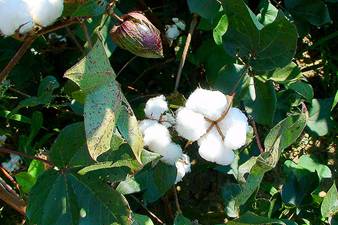The Union government of India is taking steps to counter the declining cotton production in the country by encouraging farmers to shift their cultivation from disease-infested fields to disease-free and irrigated areas. Two officials have confirmed that the government aims to promote this shift in regions such as Haryana, Rajasthan, Punjab, Maharashtra, and Telangana. Under this plan, farmers in disease-free districts will be encouraged to transition from conventional crops to cotton, while those in affected areas will be motivated to switch to other crops.
This initiative has the potential to double cotton production, increasing the yield per acre to 30 quintals. Cotton production has been on a downward trend, with figures from the textile ministry indicating a decline from 37 million bales in 2017-18 to 31.1 million bales in 2021-22. Insects like pink bollworm and whitefly have ravaged cotton crops in many regions, affecting production levels significantly.
The Indian Council of Agricultural Research (ICAR) is working closely with the agriculture ministry to execute this plan. Their proposal involves promoting the shift of cotton cultivation from areas affected by pests to locations that remain untouched. By moving away from regions infested with pests, farmers can enhance their cotton yields and mitigate the negative impact of insects on their crops.
The decline in cotton production has been particularly stark in states like Haryana and Punjab, where attacks by pests have led to a significant decrease in acreage and production levels. In Haryana, new areas such as Mahendragarh, Palwal, and Rewari have been identified for the cultivation shift, enabling farmers to move away from affected regions like Sirsa, Hisar, and Fatehabad.
This development is a crucial step towards revitalizing India’s cotton industry and boosting its cotton production. The plan aims to provide a solution to the challenges posed by pests while encouraging higher yields for farmers. Queries regarding this initiative, sent to the ICAR and the ministries of agriculture and textiles, are yet to receive a response.

